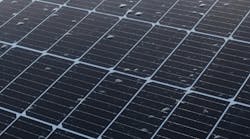Climate change may be giving new meaning to the old adage “when it rains, it pours.” Several new university, nonprofit and government-affiliated research studies are predicting that with warmer air will come increasingly frequent intense storm events, and thus greater pluvial erosion and flooding risks.
These projections are exactly that—projections. Beginning to untangle the complex components of our changing atmosphere is no simple task; natural variability in weather patterns, geographical disparities and climate model limitations are some of the many challenges scientists face.
Evidence that increased downpours are the reality, however, continues to pile up. For example, having tracked the occurrence of heavy events (top 5 percent) over the 20th century, the U.S. Global Change Research Program has observed a significant trend toward more concentrated and severe precipitation events.
As climate change alters the hydrologic cycle, it is more important than ever to make smart, conscientious use of water supplies. Storm water reuse presents a tremendous opportunity to do just that.
Consider a calculation set forth by professional engineers Dr. John Hayes, Clemson University, and Jeffrey Herr, Brown and Caldwell: The city of Orlando, Fla., needs 36,000 acre/ft of water to meet residents’ annual demand. On average, 48 in. of rain falls each year over the city’s 70,400 acres. Ultimately, the difference between Orlando’s annual pre- and post-development runoff volumes is 56,000 acre/ft, or 1.55 times its yearly water demand.
Capturing and reusing some of that runoff for nonpotable tasks—from backyard garden watering and pet washing to large-scale crop irrigation and industrial cooling—would offer a slew of benefits, including reduced stress on aging infrastructure and lower energy consumption and costs.
Municipal efforts to make beneficial use of “nuisance” storm water will help bridge manmade runoff volume gaps and decrease our reliance on progressively stressed groundwater and surface water sources. As industry advocates, we owe it to ourselves and our environment to continue supporting climate change research and the development and implementation of sustainable reuse solutions.
Download: Here

